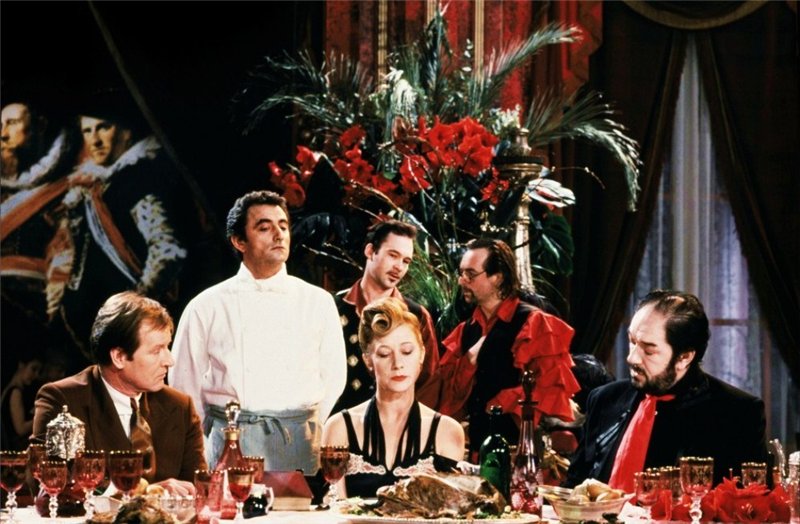The wife of an abusive criminal finds solace in the arms of a kind regular guest in her husband’s restaurant.
The wife of a barbaric crime boss engages in a secretive romance with a gentle bookseller between meals at her husband’s restaurant. Food, colour coding, sex, murder, torture and cannibalism are the exotic fare in this beautifully filmed but brutally uncompromising modern fable which has been interpreted as an allegory for Thatcherism.
The Cook, the Thief, His Wife & Her Lover is a 1989 British-French romantic black comedy crime drama film written and directed by Peter Greenaway, starring Richard Bohringer, Michael Gambon, Helen Mirren, and Alan Howard in the titular roles. The film’s graphic scatology, violence, and nude scenes, as well as its lavish cinematography and formalism, were noted at the time of its release.
Critical Reception
The film received largely positive reviews from critics. On Rotten Tomatoes, it currently holds a 90% score based on 39 reviews, with an average rating of 7.4/10. The site’s consensus states: “This romantic crime drama may not be to everyone’s taste, but The Cook, the Thief, His Wife & Her Lover is an audacious, powerful film.” Roger Ebert of the Chicago Sun-Times gave the film four out of four stars, noting that the film’s raw emotion and violent interpersonal conflict was a departure from Greenaway’s typically cerebral and intellectual films.





































